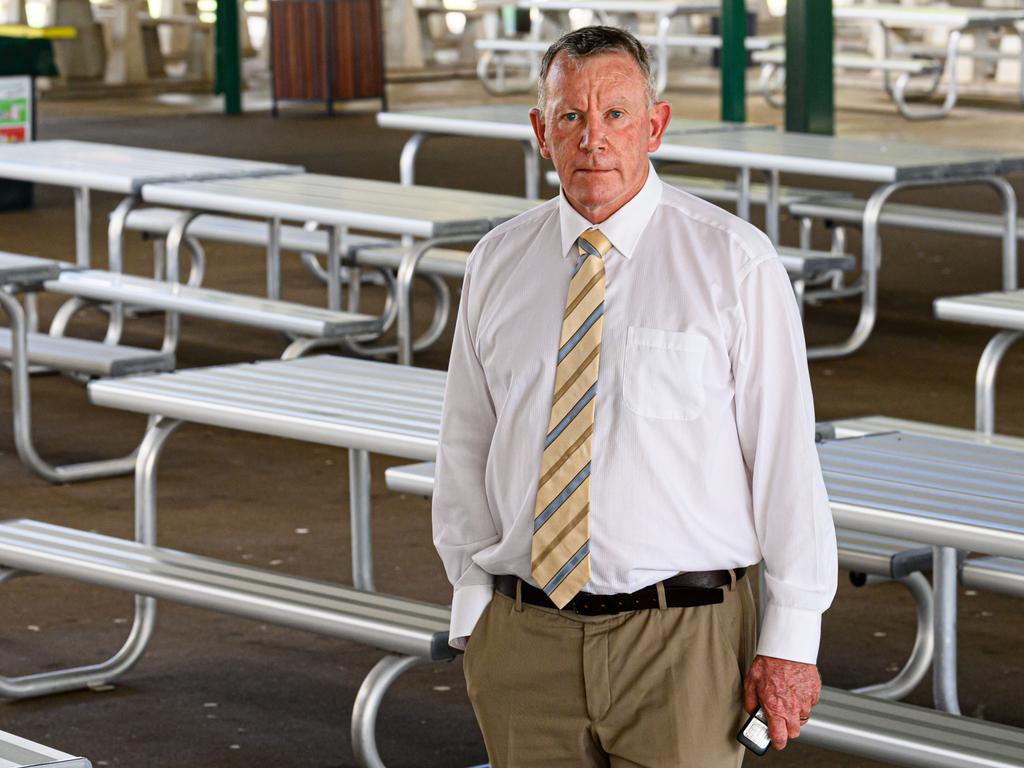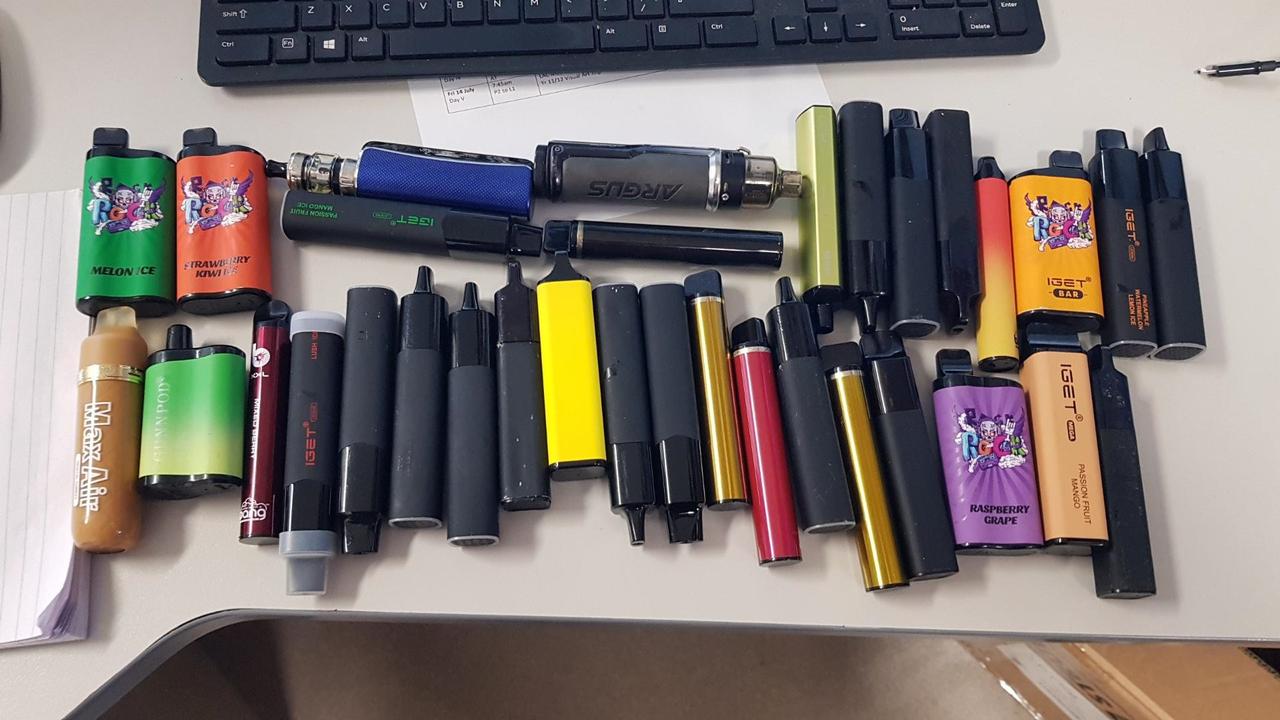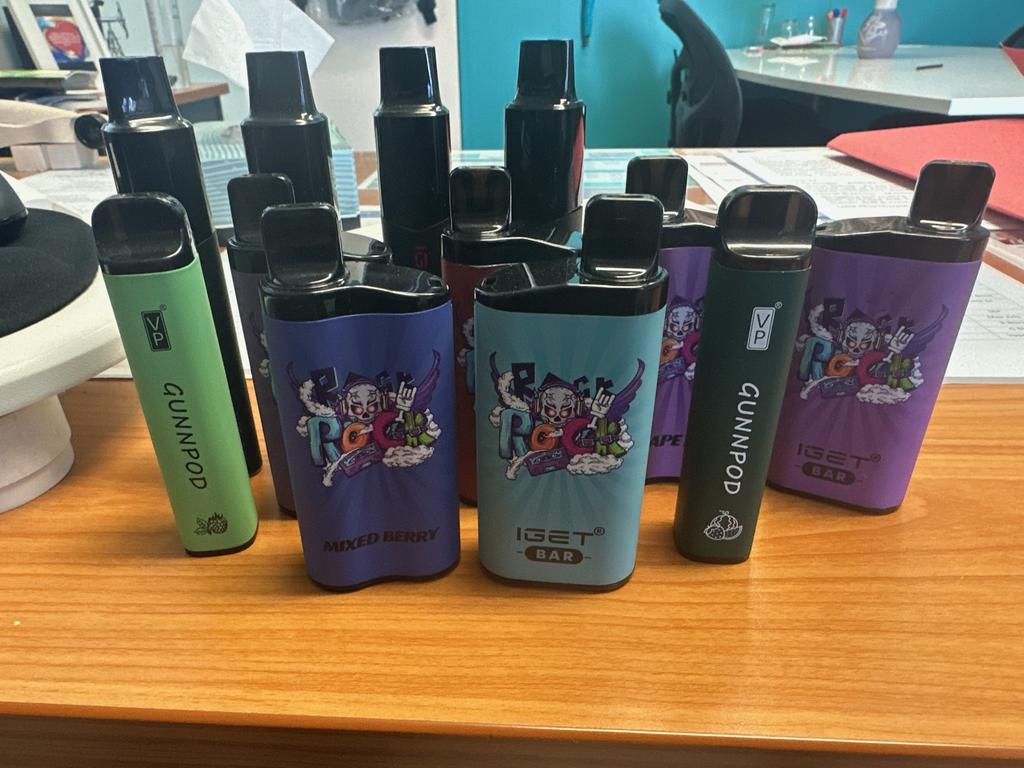Vaping in Queensland schools rife as principals forced to take extreme measures
A Queensland principal’s hard line stance on vaping, including a mandatory five-day suspension for students caught, is delivering results.
Education
Don't miss out on the headlines from Education. Followed categories will be added to My News.
Queensland principals are confiscating at least 10 vapes per week and are going to extreme lengths to curb the “significant” issue from running rife in schools.
Desk drawers have become the new homes of confiscated vapes with school insiders saying all students even in primary school are being caught up in the scourge.
Some students have turned vapes into side hustles, while many schools have installed vape detectors in toilet blocks.
It comes months after Premier Annastacia Palaszczuk called for an inquiry into vaping saying she was particularly concerned by its use among young people.
Shalom College principal Dan McMahon said he was confiscating up to 10 vapes per week throughout 2022 before cracking down on the problem.
Mr McMahon, the president of the Queensland Catholic Secondary Principals’ Association, said the Bundaberg-based college brought in a mandatory five-day external suspension.

It included children who were essentially guilty by association meaning if they were standing next to someone caught vaping, or three children caught in a toilet cubicle together.
“It’s a significant issue and a hard one to get on top of, but based on our data we have had a drop off,” Mr McMahon said.
“We were catching a lot. Supposed about seven, eight or 10 a week for a while until we cracked down.”
Mr McMahon said catching students’ vaping was easier said than done.
“They are very clever. You can smell vapes of course, but you have to actually find a kid in the act,” he said.
“With cigarettes you could never hide a lit smoke down your jocks. Short of body searches it’s very hard.”

Queensland state schools handed out more than 16,000 suspensions and exclusions for substance misconduct across 2021 and 2022, compared to 7000 in 2018 and 2019 with the spike attributed to vaping.
Queensland Secondary Principals’ Association president Mark Breckenridge said vaping remained a significant issue for schools to address.
“Some (schools) are making progress but for others it’s as bad as it’s always been,” Mr Breckenridge said.
Mr Breckenridge said managing the problem of vaping was an “incredible” drain on school leaders’ resources and time.
“There’s a myriad of ways children can access them. They’re certainly able to buy them off campus through older kids or family members,” he said.
“If it’s a problem in wider society, it’s prevalent in schools.”
Queensland Teachers’ Union president Cresta Richardson said its members were regularly reporting the distraction of vaping in schools.

Ms Richardson said parents and caregivers had an essential role to play in ensuring devices were not brought to school.
“All educational support programs to tackle vaping in schools need to be targeted at both students and parents and should be fully resourced by the government,” Ms Richardson said.
Education Minister Grace Grace said the state government continued to support teachers, principals and schools respond to vaping, but stressed they could not do it alone.
Ms Grace said the state government had recently passed legislation extending the banning of smoking and e-cigarettes to include school carparks as well as schools.
“But we don’t hide from the fact that e-cigarettes are being used in our schools, and it is a problem we take very seriously,” Ms Grace said.
““This is why, since last year, my department has been working with the University of Queensland’s National Centre for Youth Substance Use Research to strengthen the focus on smoking and vaping in our statewide drug and alcohol program.
“This is a broader public health issue that society as a whole needs to address, which is why a parliamentary committee is conducting an inquiry into reducing rates of e-cigarette use in Queensland.”
Mr McMahon urged the parents and carers to “know their children”.
“To the greatest degree possible, monitor your child’s spending money,” he said.
“It’s a matter of being closer to your child’s choices and who they’re associating with.”
The parliamentary health and environment committee is undertaking the inquiry and will report back to Parliament with its findings by the end of August.






